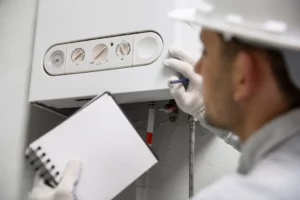 A properly arranged hot water system is essential for a comfortable and efficient home.
A properly arranged hot water system is essential for a comfortable and efficient home.
From morning showers to washing dishes, hot water is a modern necessity that requires careful planning to ensure optimal functionality and energy efficiency.
In this guide, we’ll walk you through the key considerations for arranging a hot water system in your home plumbing.
1. Selecting the Right Hot Water Heater
The first step in arranging your hot water system is selecting the right type of hot water heater. There are various options available, including tankless water heaters, storage tank heaters, and heat pump water heaters.
Consider factors such as your household size, water usage patterns, and available space to determine which type best suits your needs.
2. Ideal Placement
The placement of your hot water heater plays a crucial role in its overall efficiency. It’s advisable to install the heater as close to the primary points of use as possible.
For instance, if your main consumption areas are the kitchen and bathrooms, placing the heater centrally will minimize heat loss through long pipe runs.
3. Proper Insulation
Insulating your hot water pipes is a simple yet effective way to conserve energy. By wrapping insulation around exposed pipes, you can reduce heat loss during water transportation, ensuring that hot water reaches its destination without unnecessary energy waste.
4. Water Temperature Regulation
Maintaining the right water temperature not only ensures comfort but also saves energy. Set your water heater’s thermostat to a suitable temperature, usually around 120°F (49°C). This prevents overheating and reduces the risk of scalding while optimizing energy consumption.
5. Regular Maintenance
Arranging your hot water system is not a one-time task; regular maintenance is essential for its longevity and efficiency.
Flushing the tank annually to remove sediment buildup and checking for leaks can prevent potential issues and keep your system running smoothly.
6. Consider Renewable Energy Sources
If you’re environmentally conscious and seeking long-term cost savings, consider integrating renewable energy sources into your hot water system arrangement.
Solar water heaters, for instance, use sunlight to heat water, reducing your reliance on traditional energy sources.
7. Professional Installation
Arranging a hot water system involves intricate plumbing work that requires expertise. Hiring a professional plumber ensures that your system is correctly installed, minimizing the risk of leaks, water damage, and safety hazards.
Picture Credit: Freepik
